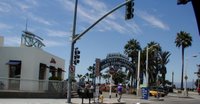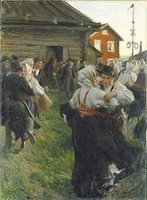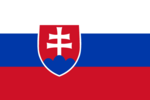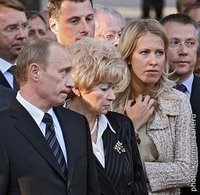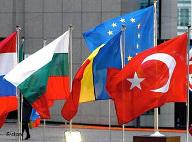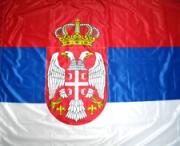
Today is the National Day of Sweden.
It’s been sort of celebrated as such for years, but since 1982 it is official that it is the National Day, and since last year it’s also a public holiday.
Why the 6th of June?
Well, there were competing offers when the choice was made in the late 19th century – the age of awakening nationalism – but June 6th seemed to be the least complicated option.
It was the day in 1523 when Gustav Vasa was crowned as King of Sweden, and it was the day in 1809 when the constitution that was in force until 1809 was promulgated.
But these were also years of drama and traumatic events in our part of Europe.
From 1397 the three nations of Norway, Denmark and Sweden had been united in what was called the Union of Kalmar after the castle in present south-eastern Sweden where it had been agreed.
But from the late 15th century nationalist feelings in Sweden started to question this arrangement. And when the Danish king Christian II – who was King of the Union – answered with repressive measures, the situation become rife for open rebellion.
This came under the leadership of the young nobleman Gustav Eriksson Vasa. He allied himself with the Hanseatic German traders in Lubeck in order to finance his rebellion against the Danes and their local allies. The more romantic mythology however attaches greater importance to him rallying the peasants of the Dalarna province for a march against the foreign occupiers in Stockholm.
Gradually he won the battles, and it was in Strängnäs on June 6th that Sweden left the old union and pronounced him king as Gustav Vasa. Thus emerged Sweden as a true nation state for the first time.
At that time Stockholm was still in Danish hands, although Gustav Vasa could enter the city on June 23rd. But large parts of Finland were not under his control, there was fighting in the South and Gotland was well beyond anything.
It took until a meeting in September in Malmö – then Denmark – for there to be some sort of provisional border settlement. It was one that Gustav Vasa was deeply dissatisfied with.
It was not a harmonious divorce after the "war of liberation", and Sweden and Denmark continued to see each other as archenemies for a couple of centuries. It’s really only since the 19th century that things have normalized.
June 6th 1809 is also associated with a traumatic realignment of the politics of Northern Europe.
These were the years of the Napoleonic upheavals across Europe. At a meeting in Tilsit, Napoleon had given tsar Alexander a free hand in northern Europe.
The resulting war - one in a series between Sweden and Russia during primarily the 18th century - had seen the armies of the Tsar defeating the Swedish armies on the battlefields of Finland. The mighty fortress of Sveaborg outside Helsinki had fallen into their hands.
And the disastrous conduct of the war had lead to a coup d’etat in Stockholm in March supported by an advancing rebellious army. The somewhat tragicomic king had been arrested.
At that time Cossack units had briefly been within just a day or two of the capital after having crossed on the ice from the Åland islands. And in June a Russian army was standing in and controlling northern Sweden.
A brief battle in the vicinity of Umeå in northern Sweden in August ended in another Swedish retreat, and in September the peace that separated Sweden and Finland, and later made Finland an autonomous nation within Russia until 1917, could be concluded essentially on Russian terms.
In the meantime the then Parliament had dismissed the king and his entire family and hastily written the new constitution. This, I understand, is what we are celebrating.
So the two June 6th are dates associated with very major geopolitical shifts and changes in Northern Europe.
The first broke down the Union of Kalmar, and there emerged the continued union between Denmark and Norway and a Sweden that at the time included also Finland. But the wars between the two large states would continue on and off for two more centuries.
The second broke down all of this.
Sweden and Finland were separated after having been one entity since the early Middle Ages. A reduced Sweden had to seek a new identity, and Finland with its wide autonomy inside Russia could start to emerge as a nation in its own right, acquiring its independence in 1917.
Denmark had sided with Napoleon in the wars of those years, and had to accept the loss of Norway, which was given to Sweden as some form of compensation for the loss of Finland. But it never worked that way, and in 1905 the two dissolved the union and Norway gots its independence.
In a wider sense, this is what June 6th is all about.
The birth of nations is often bloody, messy and not always that glorious affairs.
I leave to others to judge whether Sweden is an exception.
 I left Los Angeles late yesterday evening to return to the Old Continent.
I left Los Angeles late yesterday evening to return to the Old Continent.
